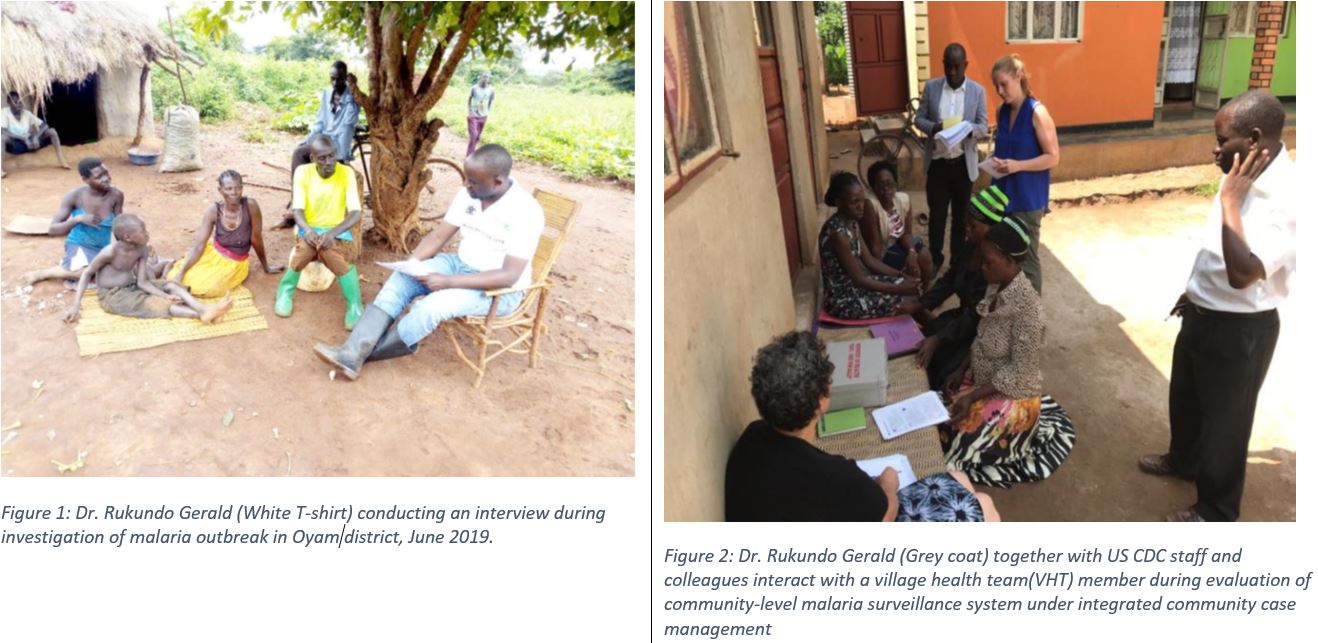 |
Dr. Rukundo B Gerald
|
ABOUT THE FELLOWDr. Gerald Rukundo joined the Uganda Public Health Fellowship in January 2018 and was hosted at the National Malaria Control Division (NMCD), Ministry of Health for a two year apprenticeship. While at the Malaria division, Gerald was part of the team that strives to control malaria in Uganda. Gerald has horned his skills in Epidemiology including disease outbreak investigation, response to public health emergency, evaluation of surveillance systems, design and implementation of operational research, data analysis, scientific writing and communication among others. Achievements at the Host Site
|
|

